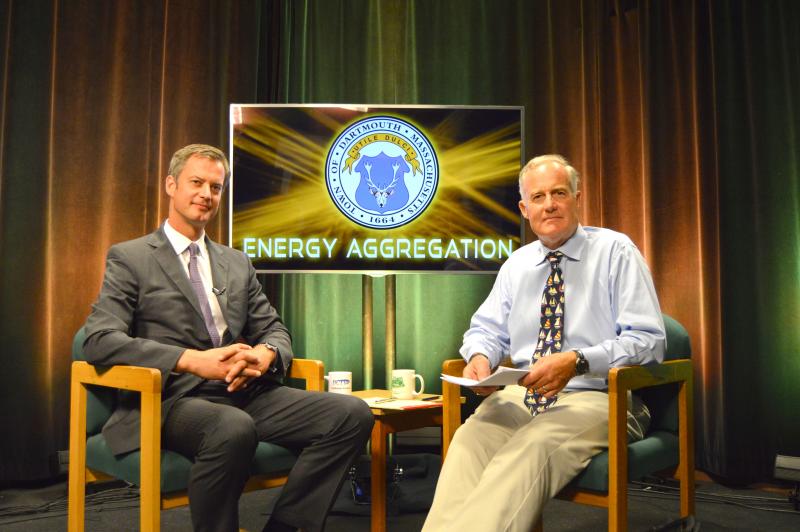Buying energy in bulk could save some cash
Dartmouth residents could soon be saving $100 annually on their energy bills.
On Wednesday, a representative from the Southeastern Regional Planning and Economic Development District (SRPEDD) and Good Energy went on Dartmouth Community Television (DCTV)to help explain the new Community Energy Aggregation program heading to Dartmouth and other area towns.
The program, which was approved by a vote during a Special Town Meeting in March, would allow the 11,000 households of Dartmouth to join up with 180,000 other households and businesses in Massachusetts to purchase energy at a bulk rate.
Ross Perry, the director of municipal management for SRPEDD, said that Massachusetts has allowed municipal aggregation since 1997, but the idea didn’t take off until recent times.
“I think what’s triggered it was two years ago when we had the perfect storm for energy rates. We had a horrendous winter, and natural gas, which is fueling most of our power plants, was constrained,” said Perry. “All that leads to skyrocketing prices.”
Since early 2014, SRPEDD has been working with Good Energy, an energy consulting firm, to establish the program. The program had to be presented to local governments and pass in Town Meetings throughout the region before it could move forward. Now, the final step is to receive approval from the Massachusetts Department of Public Utilities and then Good Energy can take bids from energy suppliers.
Perry said this is all part of an effort to bring communities together to save money.
“Not only do we combine the residents within a community to get more purchasing power, we are combining 23 communities to get the absolute best pricing,” said Perry.
He said that residents can expect to save about $80 to $120 per year, and there is little risk involved with the program. Residents will be automatically enrolled in the program, and will likely not notice many changes to their service.
During the filming of the show, Philip Carr, the business development director for Good Energy, listed some of the benefits.
“A single household will get the same purchasing power as the largest industrial user by banding together,” said Carr. “You’ll get budget stability. The utility rate changes twice a year, whether you’re with Eversource or National Grid. With this program, you have one rate that’s not going to change for the duration of the contract term, which might be two years or longer.”
Carr said customers’ energy bills will largely look the same. If power goes out, customers would still reach out to Eversource or National Grid. If a customer chooses to opt out of the program, he or she will not have to pay a termination fee. Customers can opt out at any time.
“Every single resident and business who has not already elected a competitive supplier will get sent a letter,” said Carr. “If you do not want to participate in this program, send it back. However, if you do want to participate, do absolutely nothing, and you will be enrolled.”
Perry said that, while customers may pay a little more during the summer months, the winter months will offset the cost and help customers save on an annual basis. He said the kind of money people will save annually isn’t enough to make a lavish purchase, but it is enough to inspire residents to frequent a local restaurant or shop.
“This is grassroots economic stimulus to Southeastern [Massachusetts],” he said. “And we’re not charging anything for it.”
Carr said that if all goes according to plan, the new rates will take effect in November for National Grid customers and in January for Eversource customers.
The DCTV show regarding the Community Energy Aggregation program will air the week of Aug. 24.













